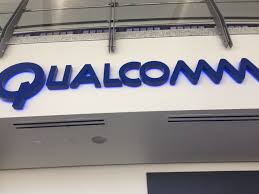Qualcomm is just one chip maker of many hoping to receive exemption from the Huawei ban
The U.S. government has granted permission for Qualcomm to sell 4G handset chips to Huawei. The news, confirmed by Qualcomm to Reuters, represents a slight exemption to U.S. trade restrictions against the Chinese telecom company.
While Qualcomm was not specific about what type of chips are being sold to Huawei, it is notable that none of them are the company’s higher-end 5G models.
The exemption is most likely the result of Qualcomm’s request to continue selling its Snapdragon chipsets to Huawei, which, prior to the trade ban, were being used in the Chinese company’s lower end handsets. Qualcomm indicated that if not given permission to do so, non-US rivals would have no problem taking over, possibly jeopardizing the U.S.’s position in the global market.
When it comes its higher-end handsets, Huawei uses chips designed in-house. However, the deal does nothing to ease Huawei’s 5G challenges. The company is expected to continue to struggle as a result of limited access to foreign silicon and advanced chip manufacturing, as the U.S. government in September prohibited global semiconductor companies from selling to the company, severely hindering its ability to design its own chips.
Following the U.S. restrictions, Huawei’s Chairman Guo Ping claimed that the company currently holds sufficient stock of chips for the company’s network equipment businesses to overcome supply chain obstacles raised by U.S. sanctions, but added that it is currently facing some problems with the supply of chips for the consumer segment.
Perhaps Huawei will catch a break, though, as Qualcomm is reportedly not the only company hoping to receive exemption from the ban. According to Caixin Global, Micron Technology, Samsung, SK Hynix, Macronix International and Chinese chip company Semiconductor Manufacturing International Corp. also submitted applications to be waived from the new restrictions.
In fact, Qualcomm isn’t even the first company to have their exemption approved. In September, the same month that restrictions were put into place, Intel was granted a license to continue supplying to Huawei.

